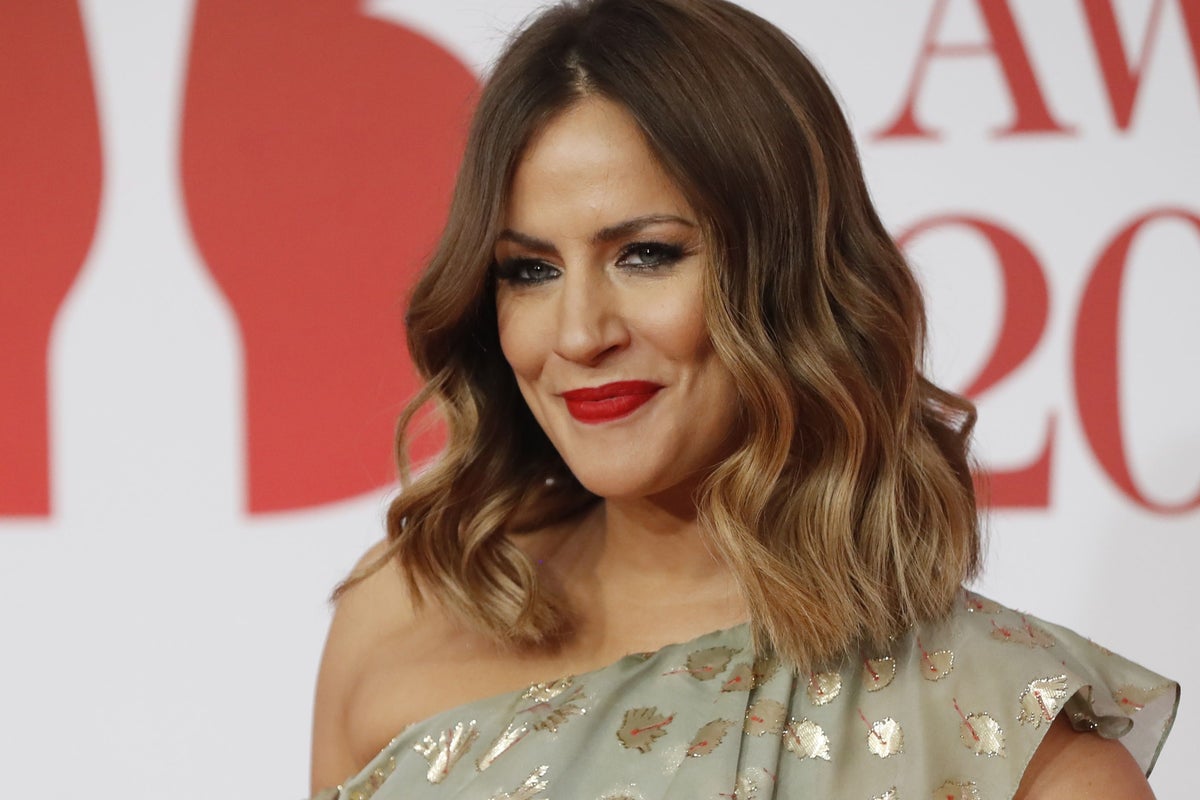Caroline Flack’s Mother Accuses Authorities of Injustice in Heartbreaking Documentary, Igniting Fury Over Media’s Role in Mental Health Crisis and Celebrity Treatment
Christine Flack’s poignant statement, “They wouldn’t let me touch her. I’ll never forget that,” resonates deeply amid ongoing discussions about mental health, media ethics, and the treatment of public figures. The tragic death of Caroline Flack, a beloved television presenter in the UK, has sparked a national conversation about the responsibilities of the media and the societal pressures faced by celebrities. Christine Flack’s desire to “set the record straight” in a new documentary serves as a catalyst for examining the broader implications of Caroline’s story.
Caroline Flack, known for her vibrant personality and roles on popular shows such as “Love Island” and “The X Factor,” became a household name in the UK. However, her life was marred by intense media scrutiny and public judgment, particularly in the months leading up to her death in February 2020. The relentless coverage of her personal life, including a highly publicized arrest for assaulting her boyfriend, contributed to a growing sense of isolation and despair. This tragic incident raises critical questions about the role of the press in shaping narratives around mental health and the responsibility that comes with such influence.
The media’s portrayal of Flack has often been criticized as sensationalist, focusing on scandal rather than compassion. This approach reflects a broader trend in tabloid journalism, where the pursuit of clicks and headlines often overshadows the ethical considerations of how individuals are depicted. The stark reality is that the relentless pursuit of stories can lead to devastating consequences for those in the public eye. Caroline Flack’s experience is not an isolated incident; it mirrors the struggles faced by many celebrities who find themselves under the microscope of public opinion.
In the wake of Caroline’s death, there has been a growing movement advocating for better mental health support and more responsible media practices. Christine Flack’s upcoming documentary aims to shed light on the emotional toll that such scrutiny can take, not only on the individual but also on their families. By sharing her daughter’s story, Christine hopes to highlight the urgent need for systemic changes within the media industry to prioritize mental health and well-being over sensationalism.
The documentary is poised to delve into the complexities of celebrity culture, examining how society often elevates individuals to a pedestal only to tear them down when they falter. The juxtaposition of fame and vulnerability is a recurring theme in many celebrity narratives, and Caroline Flack’s story exemplifies the tragic consequences that can arise when mental health struggles are ignored or trivialized. The documentary may also explore the impact of social media, where public figures are subjected to relentless criticism and judgment, often exacerbating their mental health challenges.
Christine Flack’s heartfelt plea to “set the record straight” underscores the importance of compassion and understanding in discussions about mental health. The stigma surrounding mental illness often prevents individuals from seeking help, and the fear of public scrutiny can deter them from sharing their struggles. By bringing Caroline’s story to the forefront, the documentary aims to foster a more empathetic dialogue about mental health, encouraging individuals to speak out and seek support without fear of judgment.
Furthermore, the documentary could serve as a call to action for media organizations to reevaluate their practices. The need for ethical journalism that prioritizes the well-being of individuals over sensational narratives is more pressing than ever. As society grapples with the consequences of unchecked media influence, the role of the press in shaping public perception must be scrutinized. The responsibility lies not only with journalists but also with audiences, who must demand more from the media they consume.
As the documentary unfolds, it is likely to evoke a range of emotions, from sorrow to anger, as viewers grapple with the realities of Caroline Flack’s life and the circumstances surrounding her death. The exploration of her mother’s grief and determination to honor her daughter’s legacy will resonate deeply with many, prompting discussions about the need for systemic change in how mental health issues are addressed in the public sphere.
In the larger context, Caroline Flack’s story is emblematic of a societal struggle to balance the fascination with celebrity culture against the need for compassion and understanding. As conversations around mental health continue to evolve, Christine Flack’s efforts to bring attention to these issues through her documentary may play a pivotal role in shaping public discourse and advocating for meaningful change. The intersection of mental health, media ethics, and celebrity culture is a complex landscape, one that requires ongoing examination and dialogue.
‘They wouldn’t let me touch her. I’ll never forget that,’ says Christine Flack




